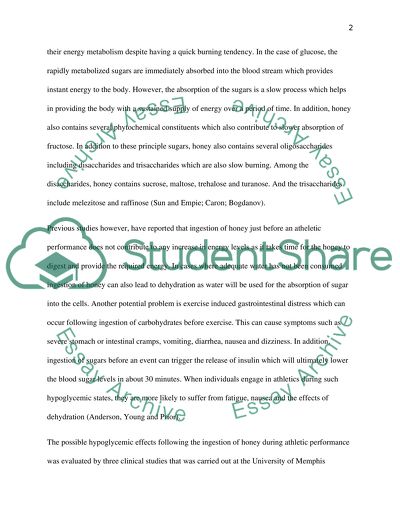Cite this document
(“Effects of Honey as a dietary supplement on improving athletic Research Paper”, n.d.)
Effects of Honey as a dietary supplement on improving athletic Research Paper. Retrieved from https://studentshare.org/health-sciences-medicine/1643826-effects-of-honey-as-a-dietary-supplement-on-improving-athletic-performance
Effects of Honey as a dietary supplement on improving athletic Research Paper. Retrieved from https://studentshare.org/health-sciences-medicine/1643826-effects-of-honey-as-a-dietary-supplement-on-improving-athletic-performance
(Effects of Honey As a Dietary Supplement on Improving Athletic Research Paper)
Effects of Honey As a Dietary Supplement on Improving Athletic Research Paper. https://studentshare.org/health-sciences-medicine/1643826-effects-of-honey-as-a-dietary-supplement-on-improving-athletic-performance.
Effects of Honey As a Dietary Supplement on Improving Athletic Research Paper. https://studentshare.org/health-sciences-medicine/1643826-effects-of-honey-as-a-dietary-supplement-on-improving-athletic-performance.
“Effects of Honey As a Dietary Supplement on Improving Athletic Research Paper”, n.d. https://studentshare.org/health-sciences-medicine/1643826-effects-of-honey-as-a-dietary-supplement-on-improving-athletic-performance.


